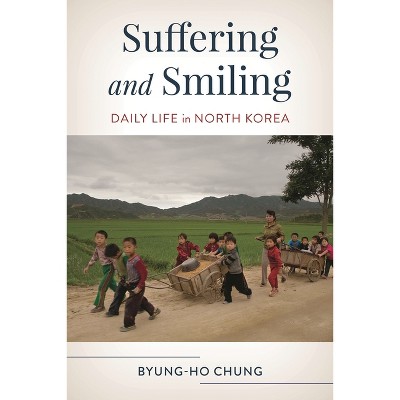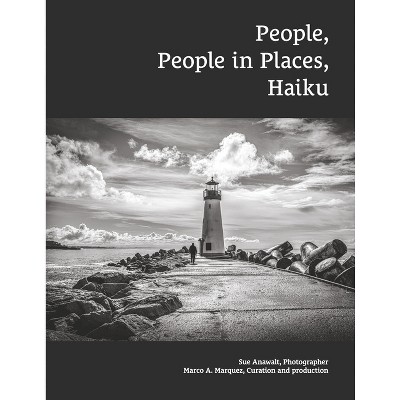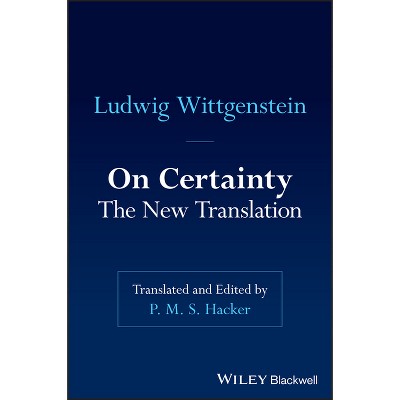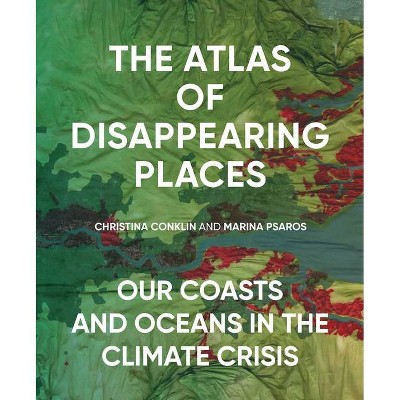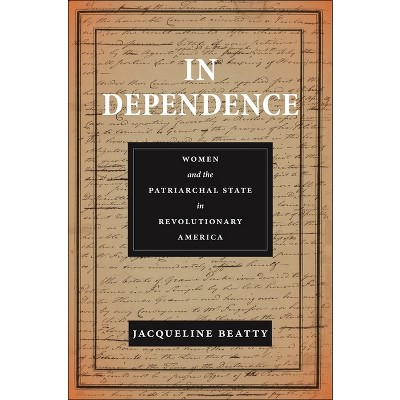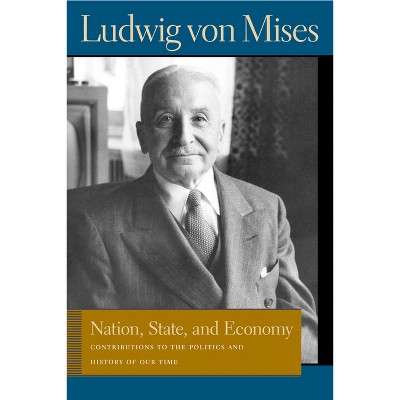Sponsored

Unforgiving Places - by Jens Ludwig (Hardcover)
In Stock
Sponsored
About this item
Highlights
- What if everything we understood about gun violence was wrong?
- About the Author: Jens Ludwig is the Edwin A. and Betty L. Bergman Distinguished Service Professor at the University of Chicago Harris School of Public Policy.
- 352 Pages
- Social Science, Violence in Society
Description
About the Book
"What if everything we knew about gun violence was wrong? In 2007, economist Jens Ludwig moved to the South Side of Chicago in the hope of answering a big question: why do US cities have so much gun violence, and is there anything to be done about it? Almost two decades later, his answers are nothing he ever expected. UNFORGIVING PLACES is the sweeping account of a multi-decade mission to identify the real drivers of violent crime in the American City. Ludwig's data show that America's stock explanations for its violent-crime problem-factors like guns, gangs, race, poverty, the economy, and premeditated malice-fall dramatically short in explaining the actual incidence and scale of the country's violent crime. Instead, Ludwig shows that the incidence of violent crime can be traced to something far more innocuous: to momentary disagreements that escalate differently based on the very different environments that characterize contemporary American society today. By framing American gun violence as a situational response to different kinds of stress in different kinds of places, Ludwig presents this longstanding problem in starkly solvable terms. Progress on gun violence needn't require America to solve every other social problem first; it only requires that we find ways to intervene on the ten-minute windows when behaviors predictably go haywire. Blending the original work of a renowned social scientist with first-person dispatches from a largely caricaturized place, UNFORGIVING PLACES is a book of uncharacteristic rigor and humanity. Ludwig expands our understanding of what economics can teach us-and in the process, redefines this quintessentially American challenge"--Book Synopsis
What if everything we understood about gun violence was wrong? In 2007, economist Jens Ludwig moved to the South Side of Chicago to research two big questions: Why does gun violence happen, and is there anything we can do about it? Almost two decades later, the answers aren't what he expected. Unforgiving Places is Ludwig's revelatory portrait of gun violence in America's most famously maligned city. Disproving the popular narrative that shootings are the calculated acts of malicious or desperate people, Ludwig shows how most shootings actually grow out of a more fleeting source: interpersonal conflict, especially arguments. By examining why some arguments turn tragic while others don't, Ludwig shows gun violence to be more circumstantial--and more solvable--than our traditional approaches lead us to believe. Drawing on decades of research and Ludwig's immersive fieldwork in Chicago, including "countless hours spent in schools, parks, playgrounds, housing developments, courtrooms, jails, police stations, police cars, and lots and lots of McDonald'ses," Unforgiving Places is a breakthrough work at the cutting edge of behavioral economics. As Ludwig shows, progress on gun violence doesn't require America to solve every other social problem first; it only requires that we find ways to intervene in the places and the ten-minute windows where human behaviors predictably go haywire.Review Quotes
"In Unforgiving Places, Jens Ludwig offers a compelling exploration of the root causes of community violence, a persistent barrier to prosperity in under-resourced neighborhoods. His research shows that proactive interventions, such as cognitive behavioral therapy, employment programs, neighborhood design, and effective law enforcement, can be transformative tools for building safer, more economically vibrant communities."
--Laura Arnold "Bloomberg, Best Books of 2025""According to a new book by University of Chicago public policy professor Jens Ludwig, both sides of the political spectrum are (somewhat) wrong with regard to their paradigmatic prescriptions for stemming the tide of gun violence in America. In "Unforgiving Places: The Unexpected Origins of American Gun Violence," Ludwig argues that behavioral economics "provides a new way to understand -- and, to the extent possible, solve -- this quintessentially American problem."-- "Hyde Park Herald"
"Economist Jens Ludwig's new book. . . shares novel research on effective policing. Contrary to the idea that most shootings are planned, Ludwig argues, many result from quick, unplanned conflicts in unstable, high-risk areas. These 'unforgiving places' often lack trusted adults, safe environments and strong community support. He suggests marrying a strong police presence with enhanced community involvement to create social programs to make these environments more supportive and less prone to violence."-- "Dallas Morning News"
"We have fashioned our criminal-justice system around the assumption that people commit violent crimes rationally and purposefully, and are aware of the consequences. But, much more often, a violent act is the result of a sudden burst of frustration or anger. Ludwig argues that our system fails to reckon with this reality, and he offers shrewd recommendations for change. We will all spend many decades, I'm sure, coming to terms with his formulation."--Malcolm Gladwell "New Yorker"
"Unforgiving Places is a welcome addition to the vast literature on guns, most of all because of its promising new approach. On a subject that has become gridlocked in left-right battles over 'gun rights, ' it is refreshing to see proposed solutions that can appeal to both liberals and conservatives. And it is heartening to read a book about gun violence whose last chapter is entitled 'The Case for Hope.'"-- "National Book Review"
"Ultimately, the reasonable takeaway from Unforgiving Places is that we need a multifaceted approach to gun violence. . . . But we also need to be paying attention to the research Ludwig spotlights here--showing that sometimes, stopping a murder is as simple as intervening at the right place and the right time."-- "Washington Free Beacon"
"In his new book, Ludwig argues that both the 'lock 'em up' and the 'solve poverty' approaches have missed the central driver of most gun violence: the seemingly uncontrollable impulse of the moment. This insight has important implications for a country that has a long track record of failure when it comes to preventing violence."-- "Vital City"
"Ludwig presents a behavioral approach to solving America's gun crisis. Instead of waiting for the U.S. to solve gun violence by addressing its social problems, incarcerating people, and reducing the amount of guns in circulation, he argues for a short-term solution: social intervention in places most affected by interpersonal violence."-- "The Trace"
"New and interesting."--Tyler Cowen "Marginal Revolution"
"The book's central message is that people kill each other on a whim. Specifically over misunderstandings or small, everyday altercations that escalate into conflict and are made so much worse by the immediate presence of guns.
Perhaps that's right, perhaps it's all a distraction, but it's definitely a refreshing take on America's most pernicious social problem."
-- "The Daily Economist""Meticulous and persuasive, this is a thought-provoking look at the deeply intertwined natures of income inequality and violence."-- "Publishers Weekly"
"[Ludwig] makes the case that communities can reduce gun violence by fostering socially controlled environments (e.g., more bystanders or professionals to step in before confrontations escalate) and teaching people how to navigate fraught situations without resorting to violence."-- "Library Journal"
"As Ludwig shows, progress on gun violence doesn't require America to solve every other social problem first; it only requires that we find ways to intervene in the places and the 10-minute windows where human behaviors predictably go haywire."
-- "The Philadelphia Citizen""Ludwig thinks more deeply about the causes of American gun violence than anyone, and his policy solutions have been proven to work. Unforgiving Places is the best book on American violence I've ever read." --Steven Levitt, coauthor of Freakonomics
"As an American police officer for the past fifty years, including time leading the police departments of Los Angeles and Chicago, I have dealt with gun violence at every level. I've been a victim of it, I've legally committed it and supervised its use, I've investigated it and I've been exposed to its horrific consequences literally a thousand times. Most importantly I've found ways to reduce it using the principles outlined in this incredible book by an academic who has research grounded in the reality of the street. Ludwig's book is a must-read for all Americans, including and especially those who understand that our biggest current tragic failure as a country is our inability to protect our children from gun violence. Please read this book and then do something! You can be part of the problem or part of the solution but you are, by action or through inaction, one or the other." --Charlie Beck, former chief of the Los Angeles Police Department and former superintendent of the Chicago Police Department
"A brilliant, engaging, and highly accessible analysis of the causes of gun violence in the United States, enriched with real-world examples from Ludwig's experience studying crime in Chicago. Unforgiving Places offers a promising foundation for finally making headway at reducing gun violence in America. It is a must-read for anyone worried about the level of gun violence in our country--and especially those motivated to actually reduce it." --Cecilia Elena Rouse, Princeton University
"On the list of challenges facing American cities, gun violence may be the most pressing. Unforgiving Places portrays the problem in deeply human and actionable terms. It is the most important book I've read on this quintessentially American challenge. Ludwig knows this work, and he knows what works."--Michael Nutter, mayor of Philadelphia 2008-2016
"An extraordinarily important book that challenges conventional wisdom about one of the most vexing problems in the United States: gun violence. Unforgiving Places is provocative, compelling, and essential."
--Melissa S. Kearney, author of The Two-Parent Privilege
"This book accomplishes an extremely rare feat: providing a new perspective on an old problem. And it does so for one of the biggest problems plaguing society: gun violence. It is a must-read for every person struggling to make sense of the violence around them."
--Sendhil Mullainathan, MIT
"If you thought you understood the origins of gun violence, think again--this book might just be the key to saving millions of lives."
--Kathryn J. Edin, coauthor of The Injustice of Place: Uncovering the Legacy of Poverty in AmericaAbout the Author
Jens Ludwig is the Edwin A. and Betty L. Bergman Distinguished Service Professor at the University of Chicago Harris School of Public Policy. He is the Pritzker Director of the University of Chicago's Crime Lab, codirector of the National Bureau of Economic Research's working group on the economics of crime, elected member of the National Academy of Medicine, and a member of the Committee on Law and Justice of the National Academies of Science. His work has been featured in leading peer-reviewed scientific publications as well as national media like the New York Times, Washington Post, Wall Street Journal, NPR, and PBS NewsHour, among other outlets.Shipping details
Return details
Frequently bought together


Trending Non-Fiction






